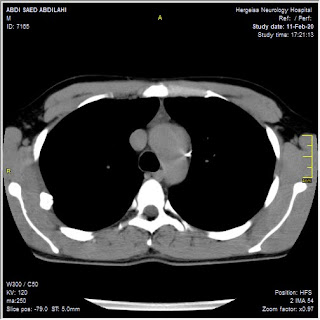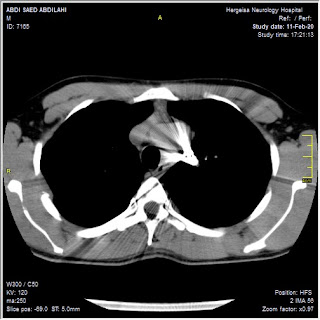Since WHO has declared it a pandemic, it only makes sense that the media sensationalizes it up to the heavens to make us feel like we've all gone to hell.
There have been many questions, even more answers, more videos, posts, tweets and public awareness messages in the last week than the entire year's health budget expenditure by our precious government.
Allow me to bring some common sense back into the equation and to allay some of the fears you may have. These are not myth busters but simple facts that would put you in a better position to deal with the pandemic should it ever reach your doorstep, heaven forbid!
What is it?
The corona virus or the new strain causing COVID-19 is not a new virus. It is something that was there in the past, only this strain is a new strain that seems to have come from animals. In the past, in humans, several varieties of the virus caused diseases ranging from simple common colds to Severe Acute Respiratory Syndrome (SARS).
Symptoms?
The same as any flu. Cough, cold, fever, congestion, aches, pains and sometimes diarrhoea. Most people may not even feel the severity of these symptoms. 80% will recover with their own immunity without any treatment. Elderly people, those with lowered immunity and those with chronic diseases are the ones that may progress to severe disease and have breathing problems.
How does it spread?
Like any viral flu, this virus also spread through droplets from the nose and mouth expelled either while coughing or sneezing. Any surface that these droplets rest on can remain infective to other people who touch said surface and then in turn touch their face, specifically their respiratory organs that allows the virus to be inhaled. Eyes too can absorb the virus if touched with an infected hand.
Can it spread through someone with no symptoms?
Yes, but only because the person who may be infected may not be exhibiting symptoms yet. There is an incubation period wherein the person may be infected but exhibit no symptoms during this period. This ranges from 24 hours to 14 days.
How can I prevent getting infected?
BASIC HYGIENE. There is no way to emphasize this enough. Simple measures like 20 sec hand washing has shown to be the most effective way in preventing the transmission of this virus. How do you know how long to wash? Sing the entire song of happy birthday to you. That is the perfect time frame to scrub your hands. Also, this is important before putting anything in your mouth as well.
Be careful of what you touch. Everyday items like your coffee cup, your mouse, keyboard and other computer peripherals, your staircase railing, your lift buttons....any of these could contain droplets of someone infected in the neighbourhood. Sanitize your hands often and wash regularly when in contact with a public surface.
Keep your distance from anyone with symptoms of the flu. The recommended distance is 1 meter or 3 feet. A simple way to do this without having to measure is to keep your handspan distance from the other person.
Avoid touching your face. Just in case the virus gets onto your hand and you haven't had the chance to wash or sanitize, just keep the hand away from your face, specifically from the points of entry viz, eyes, nose and mouth. Get to a tap or sanitizer first, then scratch away at the itch
Do not indulge in the international pass time of picking your nose!
Follow respiratory hygiene. If you have to cough or sneeze, cover your mouth and nose, keep a handkerchief or napkin handy, use tissues if available and dispose them immediately after use. Do not wait for the second sneeze to throw that tissue away
If you are sick, stay home. Be responsible and avoid spreading it to others!
Avoid travel unless absolutely necessary. Break out of the cocoon that nothing can happen to you. That's what everyone who is currently infected thought, including the doctors!
What is the risk of catching it?
If you follow the basic rules above, very very low! If not, remember the virus does spread fast and not only do you risk catching it, but also spreading it forward very quickly. The only risk is close contact with an infected person or his belongings which may contain droplets
How long does the virus stay on surfaces?
There is no clear cut answer to this as it will differ with temperature, the type of surface and the humidity but in general the virus could remain from a few hours to a couple of days. In very hot climates, it would tend to be lower!
Do I need to worry?
Not really. Be aware but don't be paranoid. Most infections are mild and self limiting. If you can prevent it, that is the best case scenario. If you have people around you that are in the high risk category, it would be wise to take extra precautions. If not, basic hygiene should see you through
Antibiotics?
There is NO ROLE of any antibiotics in the treatment of COVID-19. There are some trials with regards to anti HIV medication but those are reserved for the severe cases. No self treatment or IDIOT (Internet derived information obstructing treatment) behaviour (credit for this to a video I saw with an infectious diseases specialist doctor) and definitely no Doctor Google's self medication please!
Vaccine?
Not yet, but the powers that be are working on it 24/7
What is the deal with masks?
The most common mistake that people are making is to think that wearing a mask will protect you from infection. It doesn't. If you are sick, you need to wear it to prevent spreading the infection. If you are not sick, you are wasting a mask from people that may need it. Also, disposable surgical masks can be used only once! There is no point if you wear it after 24 hours as it probably has become a hotbed for the virus particles itself.
The N95 mask is to be used only by those who are in direct contact with infected persons. Medical personnel, nurses, medics, paramedics are at higher risk to inhale droplets from patients. They need to wear the mask at all times.
Should I give up Non vegetarian food?
There is no evidence that well cooked non vegetarian would increase the chance of spreading the virus. Avoid exotic meats at this point of time though.
Should we stop meeting people and isolate ourselves?
Not at all, unless there is an infected person among the group. Meet up with friends, have a relaxing time, stay positive and be aware.
Do not spread panic, do not spread forwards of doom and despair. Instead share this post to educate more people and help stop the spread of the virus.
Dr. Dheeraj V. Mulchandani



















